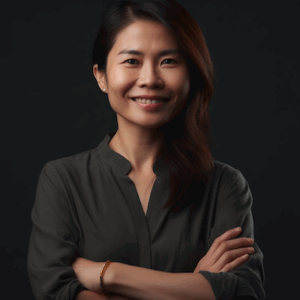What does a coaching lifestyle look like? Well. Anyway you want it to look.
It is living in your values and your purpose. This lifestyle is one that is self-managed and self-motivated. It means crafting structures and/or schedules that more than accommodate this intention and require a rich interest in self-awareness and self-growth.

The lifestyle looks different for each coach. For a mother, the lifestyle might allow them to be home with their children or have the flexibility to do things with them even during normal business hours.
For another coach, it means traveling and encountering the people of the world and being able to work (that is, coach) while on the road, coaching from anywhere in the world where there is an internet connection.
And for another coach, it means a life that involves extreme self-care, taking care of oneself, and reducing stress and stress-related ailments. Having the time and flexibility to accommodate exercise, eating well, and such mindful practices as meditation and yoga.
Integral to the coaching lifestyle is a belief in the resourcefulness and creativity of all people, including ourselves. It is seeing your coaching and your self-development as interwoven, as we coach, we learn, we gain new awareness in ourselves and the world. It is one of the very few professions where you gain as much, if not more, from doing it than the client you serve!
Stepping into the coaching lifestyle is a process – taking every day as an opportunity to live more fully in the lifestyle we have chosen.
What Does It Really Mean to Live as a Coach Today?
One of the most exciting things about becoming a coach is that you get to design your lifestyle around your values, purpose, and priorities. This lifestyle is often self-managed and self-motivated — one where personal development, professional growth, and flexibility coexist.
But what does that look like in real life?
A Lifestyle As Unique As You Are
The coaching lifestyle is not one-size-fits-all. For some, it’s about flexibility — being able to work from home while raising a family or adjusting your schedule to attend a child’s school event during the day. For others, it’s about global mobility — coaching from a beach in Bali, a café in Paris, or a coworking hub in Buenos Aires. If you have internet, you can work.
For many, it’s about prioritizing well-being: daily movement, mindful eating, and time for yoga or meditation — all built into a schedule that supports, rather than drains, your energy.
Whether you’re transitioning from corporate life or starting your first business, coaching lets you create a lifestyle that’s aligned with your deeper values.
Coaching and Self-Development Go Hand in Hand
One of the most rewarding parts of being a coach is how much you grow. As you support others through their transformations, you’re constantly evolving too. Coaching isn’t just a job — it’s a way of being. It invites ongoing self-awareness, presence, and curiosity.
That’s what makes it more than a career — it’s a calling. A profession that helps others while also deeply enriching your own life.
How to Get Started
If you’re considering coaching as a career and lifestyle, choosing the right training is key. Look for a program that’s ICF-accredited, offers flexible online learning, and gives you the opportunity to build both coaching skills and a coaching business.
At International Coach Academy (ICA), our programs are designed for people just like you — professionals seeking more meaning, flexibility, and impact in their work and life.
Case Study 1: Coaching From the Road – Alejandro, Digital Nomad & Leadership Coach
After years working in corporate leadership, Alejandro left his job in Madrid to travel — but he didn’t want to give up his passion for developing people. So he enrolled in an ICF-accredited coach training program and launched a remote coaching practice.
Now, Alejandro works with international clients while living out of a backpack and a laptop. He takes calls from Lisbon, Tokyo, and Buenos Aires — wherever there’s Wi-Fi. His work helps leaders grow, and his lifestyle gives him the adventure and independence he always wanted.
“The freedom to work from anywhere wasn’t just a dream — coaching made it real.”
Case Study 2: Reclaiming Balance – Priya, Health Coach & Former Lawyer
Priya spent a decade in law — long hours, high stress, and little time for herself. After burning out, she reevaluated what success meant and pivoted to coaching. She now helps other high-achieving professionals manage stress and design sustainable careers.
Her coaching practice is part-time, so she can spend mornings walking her dog, going to yoga, or simply enjoying a slower pace of life. She still earns a solid income — but more importantly, she’s thriving, not just surviving.
“I didn’t want to leave my ambition behind. I just wanted to stop sacrificing myself to meet it.”
Case Study 3: Making Work Fit Family – Lani, Parenting Coach in Australia
When Lani became a mum, she realized she didn’t want to return to a 9-to-5 office job. She trained as a coach while her children were small and now runs a thriving coaching business from home. She supports parents who are navigating big life transitions — like she did — and builds her schedule around school pickups, playdates, and self-care.
“It’s not about doing less — it’s about doing the right things, at the right time.”
What All Coaching Lifestyles Have in Common
No two coaching lifestyles look the same, but they share some key characteristics:
Flexibility – You choose your hours, clients, and working style
Purpose – You’re helping others, not just chasing KPIs
Growth – You develop alongside your clients, deepening your own self-awareness
Freedom – Whether it’s location freedom or creative freedom, you design the life you want
Coaching is one of the rare professions where your personal development is professional development. As you coach others, you grow yourself — emotionally, mentally, and even spiritually. You start noticing how your values show up in your conversations. You begin listening differently. You become more present, more curious, and more intentional.



